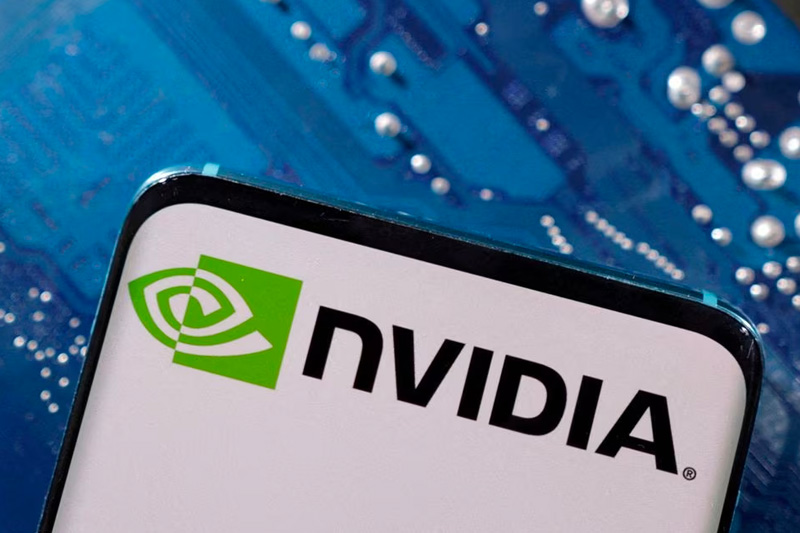US Supreme Court Dismisses Securities Fraud Case Against Nvidia – One America News Network
December 11, 2024 – 7:39 AM PST

WASHINGTON (Reuters) – On Wednesday, the U.S. Supreme Court chose not to make a determination regarding whether shareholders could go ahead with a securities fraud lawsuit against Nvidia (NVDA.O), an artificial intelligence chip manufacturer. The lawsuit alleges that the company misled investors about the extent of its sales that were tied to the unpredictable cryptocurrency market.
Advertisement
The justices, who heard arguments related to the case on Nov. 13, rejected Nvidia’s appeal against a ruling from a lower court that permitted a 2018 class action—driven by the investment management firm E. Ohman J:or Fonder AB based in Stockholm, Sweden—to proceed.
The Supreme Court decided not to address the fundamental legal issue, indicating that the case hadn’t been appropriately granted. This action leaves the ruling of the lower court intact. The dismissal from the Supreme Court was issued in a brief order without any additional reasoning provided.
During the proceedings, several justices voiced concerns about intervening, questioning whether there was a definitive legal question at stake, as opposed to merely factual disputes. They suggested that the underlying technological complexities of the case could put them in an unfavorable position to adjudicate.
The central issue was whether the plaintiffs met the elevated legal standard to file private securities fraud lawsuits, established by the 1995 Private Securities Litigation Reform Act, which aims to filter out baseless claims.
The plaintiffs claimed that Nvidia and its CEO, Jensen Huang, breached the 1934 Securities Exchange Act by making statements in 2017 and 2018 that misleadingly minimized the contribution of cryptocurrency-related sales to Nvidia’s revenue growth.
From 2017 onward, with rising cryptocurrency prices, Nvidia’s chips gained popularity in cryptomining—a process that involves solving complex mathematical equations to secure cryptocurrencies like bitcoin and ether.
However, by late 2018, as crypto profitability dwindled, Nvidia’s revenue fell short of expectations, causing a dip in its stock price in early November of that year.
The plaintiffs accused Nvidia and its executives of not disclosing the significant impact that cryptomining had on the company’s performance. They seek unspecified monetary damages to recover the value lost from Nvidia shares held by investors.
In 2022, Nvidia agreed to settle with U.S. authorities for $5.5 million over charges of improper disclosure related to cryptomining’s effects on its gaming division, without admitting or denying the findings of federal regulators.
A federal judge had previously dismissed the lawsuit, but the case was later reinstated by the 9th U.S. Circuit Court of Appeals. The 9th Circuit concluded that the plaintiffs sufficiently alleged that Huang made “false or misleading statements knowingly or recklessly,” thus allowing the case to advance.
Nvidia argued before the Supreme Court that the plaintiffs failed to demonstrate that the disputed corporate statements were false or that the company had deliberately or recklessly misled investors, as legally required.
The plaintiffs contended that their lawsuit included compelling allegations—drawn from former employees, market analyses, and expert opinions—sufficient to bypass Nvidia’s motion for dismissal and move on to the discovery phase of litigation.
The Biden administration backed the shareholders in this case.
This Nvidia case was one of two heard by the Supreme Court in November regarding private parties’ rights to hold companies accountable for alleged securities fraud. The other case involved Meta’s (META.O) Facebook, argued on Nov. 6, which the justices similarly dismissed on Nov. 22.
Reporting by John Kruzel; Editing by Will Dunham
Advertisements below



